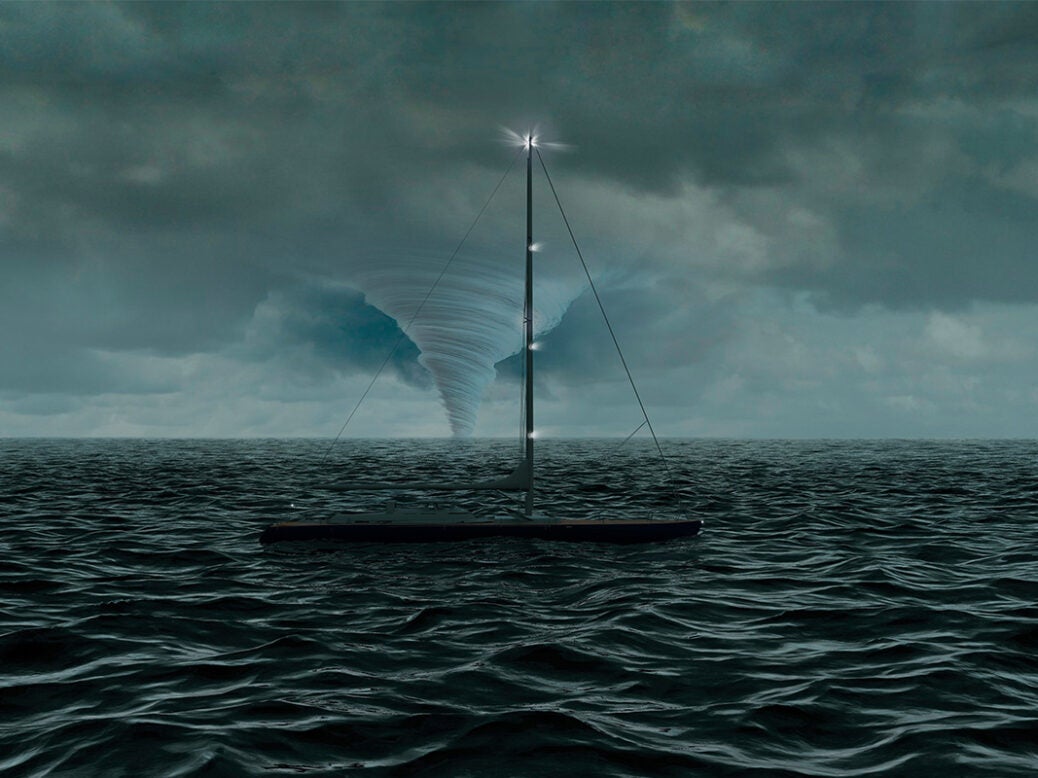
The sinking of the British-flagged superyacht Bayesian off the coast of Sicily continues to make headlines, more than a week after the tragedy that claimed seven lives.
[See also: Best aviation and yacht lawyers 2024]
British tycoon Mike Lynch, 59, his daughter Hannah, 18, Clifford Chance lawyer Chris Morvillo and his wife Neda, and Morgan Stanley International chair, Jonathan Bloomer, and his wife Judy, died alongside the yacht’s chef, Recaldo Thomas, in the disaster.
There were 22 people on board, including 12 passengers and 10 crew, when the 56m sailing boat capsized in bad weather at about 5am local time off the coast of Porticello. Eyewitnesses say the yacht, reportedly owned by Lynch’s wife Angela Bacares’ company, sank within 16 minutes.

Captain James Cutfield, from New Zealand, is under investigation for possible manslaughter and culpable shipwreck charges. Two British crew members are also under investigation.
The speed at which the Bayesian sank has baffled and shocked experts. The exact cause as to why the luxury vessel sank so devastatingly quickly has yet to be determined, but the disaster has sent ‘shockwaves through the industry’, according to Will Christie, founder of superyacht brokerage firm, Christie Yachts, and Spear’s Top Recommended adviser.
Superyacht safety risks
The Bayesian was built by Italian shipbuilder Perini in 2008 and refitted in 2020. Its 75m (246ft) mast was claimed to be the tallest aluminium mast in the world. Perini, a highly respected shipbuilder, has robustly defended the vessel. Giovanni Costantino, founder and CEO of The Italian Sea Group, which owns the firm that built Bayesian, told Sky News superyachts ‘are the safest in the most absolute sense’, a claim echoed by yacht experts spoken to by Spear’s.

Superyachts are built to strict codes, says Spear’s adviser Quentin Bargate, founder of Bargate Murray, who says he would regard a yacht like Bayesian, as ‘practically unsinkable’.
Christie echoes this, saying luxury vessels are ‘very safe, run by a well-qualified, well-trained crew with many miles of experience under their belts’. Crews are encouraged to take regular refresher courses and drills to keep on top of their skills and wider industry changes. Crews will know their duty in the event of an emergency, based on the roles on the boat’s muster list.
The incident made headlines around the world precisely because it was a ‘one in a billion’ event, Christie notes.
‘There are rare and occasional accidents, where a crew member may be injured, or worse, but we’ve never seen a yacht sink like this with mass loss of life,’ he added.
Luxury vessels are built to high standards – overseen by the classification society Lloyd’s Register or the ABA in the US. The design and construction of a superyacht is governed by class rules and international maritime regulations.These super high-spec vessels have annual inspections, are surveyed regularly, and every five years are hauled out of the water for a rigorous once over, Christie says.
According to Lloyd’s, ‘most new-build projects go far beyond the prescribed safety and operational standards’.
Swift weather changes are, naturally, a consideration when on the open seas, but crew members are trained to handle any difficult situations.
[See also: Best yacht advisers 2024]
Superyachts are required to carry essential safety equipment, such as life rafts, personal flotation devices, fire extinguishers, and emergency communication systems.
Bargate adds: ‘I am not aware of any design issues that are alleged to have contributed to the sinking. It was a yacht built by a very well-known and respected builder.’
Choppy waters ahead?
Will the disaster have a short – or even long-term – impact on the industry. Could it even put HNWs off owning or chartering a yacht?
Christie doesn’t think the disaster will have an impact on the world of superyachts, although he does caveat that it will depend on the outcome of the investigation. He did not want to speculate on the cause of the dramatic sinking, but added there will ‘obviously be questions and the industry is keen to understand what happened’.
‘But I don’t think people will be put off yachting,’ he says. ‘It is governed by lots of rules and regulations; yachts must meet all sorts of regulations with the flag state. The risk of yachting hasn’t become worse.’
Bargate agrees: ‘It’s a freakish series of events. Most of these things are never supposed to happen at once.’
[See also: the complete Yacht Advisers Index 2024 on Spears500.com]
The outcome of an investigation will likely be months away and, depending on the findings, procedures could be put in place to prevent anything like this from happening again.
‘When things happen sometimes certain rules and procedures will be enforced,’ Christie says. ‘It may throw up new ways of thinking – the family certainly wants answers.’
Bargate agrees: ‘It’s a very unusual event. So I suspect when we go through the inquiry, what we’ll find is, if something went wrong, something wasn’t done, that should have happened. It’s not because these vessels are fundamentally unsafe. They’re very safe.’
Mitigating risks
Bargate speculates that rules and regulations around the use of yachts or the construction or design of yachts will not change, but that crew training and passenger safety briefings may be tightened in the wake of the tragedy.
‘Most accidents at sea lead to action on improving safety, as with the loss of the Titanic, which led eventually to changes in the number of lifeboats on passenger liners,’ says Baygate. ‘There are many other examples affecting yachts. The REG -YC yacht code is a further example.’
Bargate continues: ‘I have heard that some think that the passengers should have been asked to attend their muster stations earlier, and not been permitted to remain in their cabins. If true, that might have reduced the risk of loss of life, but again, we need to await the full inquiry to determine all the facts.’
‘But at the moment, it’s a very well-designed, well built, built yacht. And I think we have to wait to hear what the inquiry says.’






